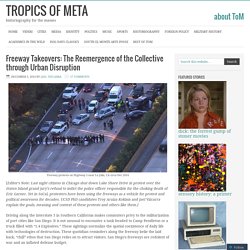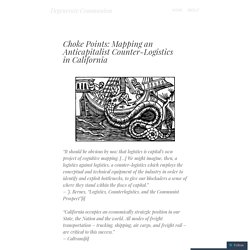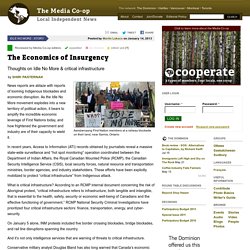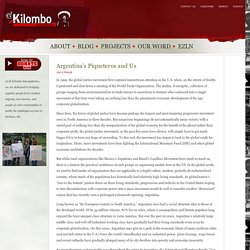

Reclaim UC on Twitter: "going to link to a handful of pieces of writing that have to do with highways and highway blockades. feel free to suggest more." Rasheed ☥ Shabazz on Twitter: ".@reclaimuc ok. that is an epic thread. rebelling against the infrastructure of metropolitan segregation" Freeway Takeovers: The Reemergence of the Collective through Urban Disruption – Tropics of Meta. Freeway protests on Highway 5 near La Jolla, CA circa Dec 2014 [Editor’s Note: Last night citizens in Chicago shut down Lake Shore Drive in protest over the Staten Island grand jury’s refusal to indict the police officer responsible for the choking death of Eric Garner.

Yet in SoCal, protesters have been using the freeways as a vehicle for protest and political awareness for decades. UCSD PhD candidates Troy Araiza Kokinis and Jael Vizcarra explain the goals, meaning and context of these protests and others like them.] Driving along the Interstate 5 in Southern California makes commuters privy to the militarization of port cities like San Diego. It is not unusual to encounter a tank headed to Camp Pendleton or a truck filled with “1.4 Explosives.” The trail of freeway takeovers witnessed after the Ferguson verdict that acquitted Darren Wilson has once again revealed the extent to which urban geographies remain highly racialized spaces. Protesting in Barrio Logan circa 1970s Like this: Choke Points: Mapping an Anticapitalist Counter-Logistics in California. “It should be obvious by now that logistics is capital’s own project of cognitive mapping. […] We might imagine, then, a logistics against logistics, a counter-logistics which employs the conceptual and technical equipment of the industry in order to identify and exploit bottlenecks, to give our blockaders a sense of where they stand within the flows of capital.”– J.

Bernes, “Logistics, Counterlogistics, and the Communist Prospect”[i] “California occupies an economically strategic position in our State, the Nation and the world. All modes of freight transportation – trucking, shipping, air cargo, and freight rail – are critical to this success.”– Caltrans[ii] The post-Occupy stagnation of class struggle within the US context is becoming increasingly typified, in this period of ever deepening crisis, by a rather simplistic dual nature. The Economics of Insurgency.
News reports are ablaze with reports of looming Indigenous blockades and economic disruption.

As the Idle No More movement explodes into a new territory of political action, it bears to amplify the incredible economic leverage of First Nations today, and how frightened the government and industry are of their capacity to wield it. In recent years, Access to Information (ATI) records obtained by journalists reveal a massive state-wide surveillance and “hot spot monitoring” operation coordinated between the Department of Indian Affairs, the Royal Canadian Mounted Police (RCMP), the Canadian Security Intelligence Service (CSIS), local security forces, natural resource and transportation ministries, border agencies, and industry stakeholders. These efforts have been explicitly mobilized to protect “critical infrastructure” from Indigenous attack.
Bc_blockades-imposed. Argentina’s Piqueteros and Us. In 1999, the global justice movement first captured mainstream attention in the U.S. when, on the streets of Seattle, it protested and shut down a meeting of the World Trade Organization.

The motley, if energetic, collection of groups ranging from environmentalists to trade unions to anarchists to farmers who coalesced into a single movement at that time were taking on nothing less than the preeminent economic development of the age: corporate globalization. Since then, the forces of global justice have become perhaps the largest and most inspiring progressive movement seen in North America in three decades. But auspicious beginnings do not automatically mean victory; with a stated goal of nothing less than the reorganization of the global economy for the benefit of the planet rather than corporate profit, the global justice movement, as the past five years have shown, will simply have to get much bigger if it is to have any hope of succeeding. The Piqueteros New tactics, new strategies. Theses on the Paris Commune (Debord, Kotanyi & Vaneigem) “The classical workers movement must be reexamined without any illusions, particularly without any illusions regarding its various political and pseudotheoretical heirs, because all they have inherited is its failure.
The apparent successes of this movement are actually its fundamental failures (reformism or the establishment of a state bureaucracy), while its failures (the Paris Commune or the 1934 Asturian revolt) are its most promising successes so far, for us and for the future” (Internationale Situationniste #7). Elements of a Barricade.
Zine cover by K.
